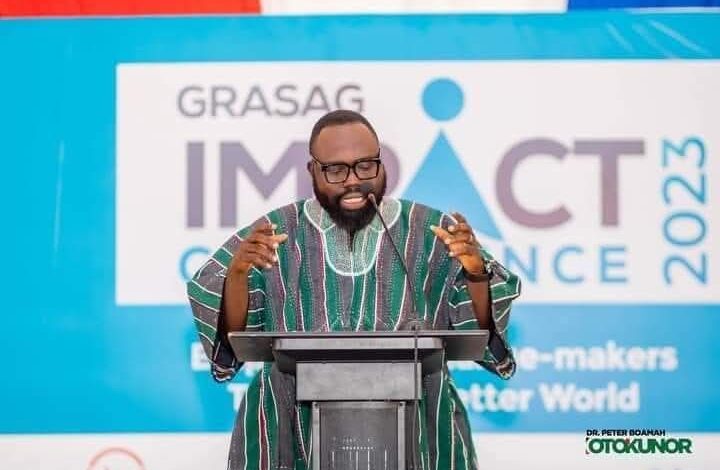
Dr. Peter Boamah Otokunor’s appointment as the Director in charge of the Presidential Initiative on Agriculture and Agribusiness at the Office of the President marks a significant step in Ghana’s efforts to revamp its agricultural sector. With his extensive experience in agricultural economics and policy formulation.
Dr. Otokunor is well-positioned to drive President John Dramani Mahama’s ambitious agricultural and agribusiness policies, which aim to enhance food security, promote value addition, and create jobs through agro-industrialization.
Mahama’s Vision for Agriculture and Agribusiness
President Mahama has outlined a transformative agenda for the agricultural sector, shifting its focus from subsistence farming to a modern, business-oriented approach. This vision is anchored on:
1. The 24-Hour Economy Policy, aimed at ensuring round-the-clock agricultural production, processing, and marketing.
2. Development of Agro-Industrial Enclaves that will serve as processing hubs for farm produce.
3. Enhancing local food production to reduce reliance on imports and ensure food security.
Dr. Otokunor’s leadership will be instrumental in executing these policies effectively.
What Dr. Otokunor Brings to the Role
As an agricultural economist and a former Deputy General Secretary of the National Democratic Congress (NDC), Dr. Otokunor combines technical expertise with political experience, making him well-suited for this critical role. His contributions will focus on the following key areas:
i. Implementing the 24-Hour Economy Policy in Agriculture
One of the Mahama administration’s flagship policies is the 24-Hour Economy, which will be integrated into the agricultural sector. Under Dr. Otokunor’s leadership, this initiative will:
1. Ensure continuous production cycles by supporting farmers with irrigation infrastructure, mechanization, and improved seeds.
2. Establish 24-hour agro-processing facilities to reduce post-harvest losses and maximize productivity.
3. Create employment opportunities in farming, transportation, and processing by encouraging shifts in agricultural industries.
ii. Expanding Agro-Industrial Enclaves
Dr. Otokunor will oversee the development of Agro-Industrial Enclaves, where raw agricultural produce will be processed into finished goods for domestic and export markets. This initiative will:
1. Reduce post-harvest losses by ensuring that produce is processed quickly and efficiently.
2. Improve Ghana’s export competitiveness by producing finished agricultural goods instead of exporting raw materials.
3. Attract investment into agribusiness, creating more job opportunities in rural areas.
iii Promoting Value Addition and Agro-Processing
A major focus of Mahama’s agricultural policy is moving away from exporting raw materials and instead developing value-added products. Dr. Otokunor will drive initiatives such as:
1. Expanding local processing of cocoa, cashew, maize, and rice to increase revenue from exports.
2. Providing incentives for private sector investments in food processing industries.
3. Supporting small and medium-scale agro-processing enterprises to scale up production.
iv. Strengthening Farmer Support and Market Linkages
Farmers will play a central role in Ghana’s agricultural transformation. Dr. Otokunor will implement programs that:
1. Provide subsidized inputs, fertilizers, and mechanization services to farmers.
2. Create structured market systems to ensure fair pricing for farmers.
3. Establish partnerships with financial institutions to offer low-interest loans to agribusinesses.
v. Boosting Food Security and Reducing Imports
A key priority for the new administration is enhancing domestic food production to reduce Ghana’s reliance on food imports. Dr. Otokunor will lead efforts to:
1. Expand large-scale commercial farming for staple crops such as rice, maize, and soybeans.
2. Encourage the use of modern irrigation systems to reduce dependence on rainfall.
3. Strengthen research and extension services to introduce climate-smart agricultural practices.
_Expected Impact of Dr. Otokunor’s Leadership_
Under Dr. Otokunor’s guidance, Ghana’s agricultural sector is expected to undergo a major transformation, resulting in:
Increased food production, reducing reliance on food imports.
Job creation across the agricultural value chain, from farming to processing and export.
Higher export earnings from value-added agricultural products.
Improved livelihoods for farmers and agribusiness entrepreneurs.
Conclusion
Dr. Peter Boamah Otokunor’s appointment is a strategic move in implementing President Mahama’s vision for a modern, business-oriented agricultural sector.
With his expertise in agricultural economics, policy implementation, and governance, he is well-equipped to lead Ghana’s transformation into a globally competitive agribusiness hub. By focusing on value addition, market access, and farmer support.
Dr. Otokunor will play a key role in ensuring that agriculture remains a driver of economic growth and job creation in Ghana.
By Smith Boahene




